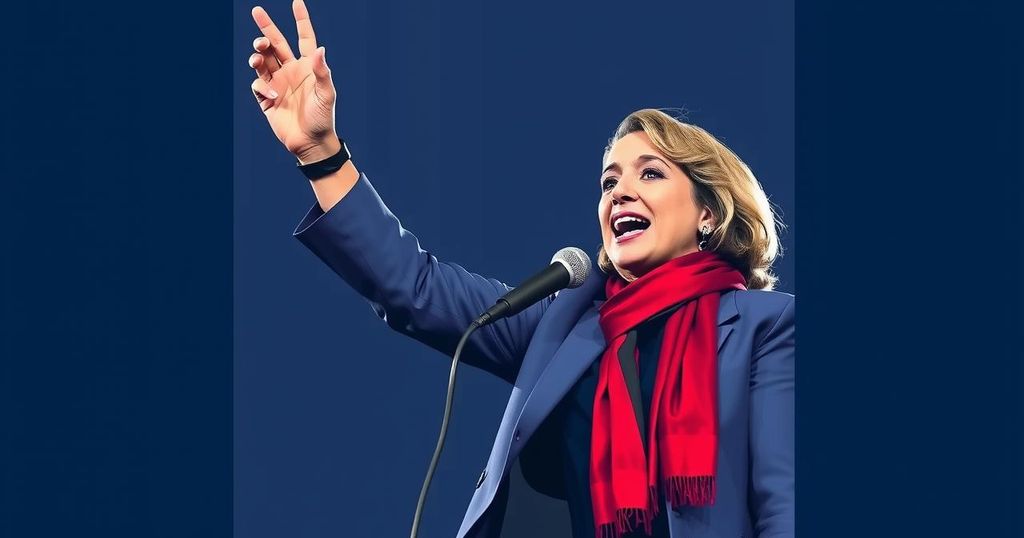Yamandu Orsi of the Broad Front coalition has won Uruguay’s presidential election, defeating Alvaro Delgado from the National Party in a close runoff. Orsi secured 49.8% of the votes, while Delgado attained 45.9%. Current President Luis Lacalle Pou has promised a smooth transition to Orsi’s administration. Orsi aims to address significant issues such as economic stagnation and rising crime in the country.
In a closely contested election, leftist candidate Yamandu Orsi of the Broad Front coalition emerged victorious in Uruguay’s presidential race following a second round of voting. With approximately 49.8% of the ballots compared to 45.9% for his opponent, Alvaro Delgado of the ruling National Party, Orsi claimed victory with a margin of around 95,000 votes. The electoral process witnessed a remarkable turnout of nearly 90% among the electorate of about 3.5 million citizens.
During his acceptance speech, Orsi emphasized the need for unity despite the electoral division, stating, “The country of liberty, equality and fraternity has triumphed once again,” while acknowledging the feelings of those who supported his opponent. Delgado graciously conceded, expressing his support for Orsi’s presidency. Current President Luis Lacalle Pou confirmed a seamless transition, pledging his cooperation with Orsi.
Yamandu Orsi, a 57-year-old former history teacher and recognized figure in Uruguayan politics, previously served as the mayor of Montevideo. His leadership draws comparisons to former President Jose Mujica, a symbol of liberal governance and social progress. The election was marked by significant concerns over economic growth, stagnant wages, and rising crime rates, which shaped the electorate’s decisions.
The recent presidential election in Uruguay highlighted a significant political shift with the return of a left-wing candidate after several years of center-right governance. Yamandu Orsi’s triumph signifies a resurgence of the Broad Front coalition, which previously held power for 15 years until 2019. This election unfolded against a backdrop of public discontent due to economic stagnation and increased crime, reflecting voters’ desires for change and a new approach to governance. Orsi’s leadership style and political influence are expected to align closely with progressive policies that prioritize social equality and comprehensive reforms in response to Uruguay’s current challenges.
In summary, Yamandu Orsi’s election represents a pivotal moment for Uruguay, as he seeks to unify a divided nation while addressing pressing economic and social issues. His victory signals a return to leftist governance after a challenging period under a center-right administration. As he prepares for his presidency, key areas of focus will likely include economic revitalization and enhanced public safety measures. With a commitment to collaboration and inclusivity, Orsi’s leadership may shape a new era for the Uruguayan people.
Original Source: www.dw.com






